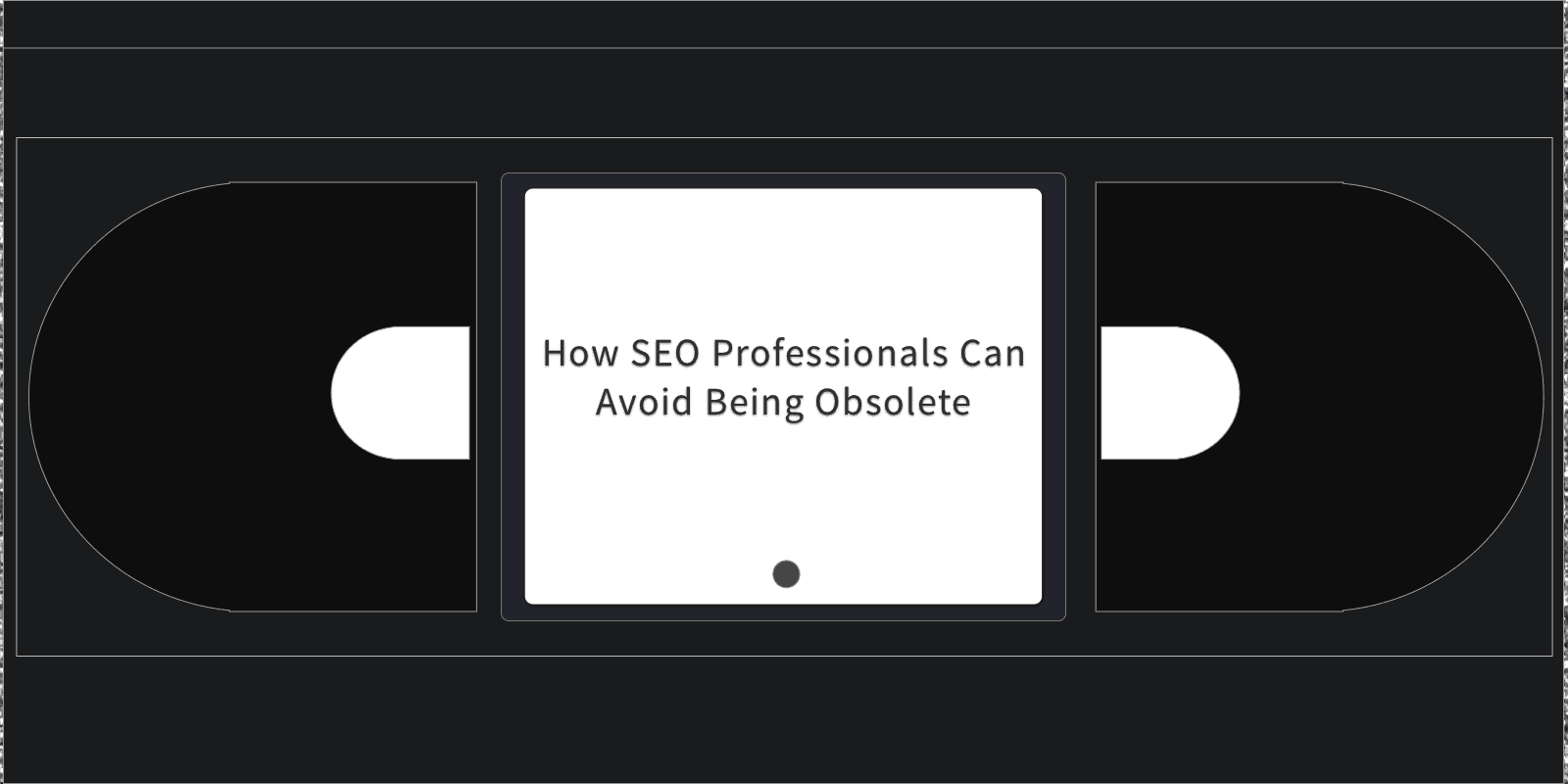Year after year, Google is constantly changing their search algorithm and the SERPs as a whole.
With constant change – including the rise of machine learning – comes a natural fear that, someday, the roles of SEO professionals will become obsolete.
I hope to remedy some of that fear today and walk some of you through what I feel will allow you to stay relevant within the SEO industry.
The main talking points of this article will focus on the following:
- How to stay relevant in the field of SEO
- The value of technical SEO expertise
- When to learn new skills
- Being able to communicate the value of SEO
1. Stay Up to Date
The most important habit every SEO professional needs to develop is reading. Make sure you set aside some time to find resources that will allow you to get timely information when you need it.
An out of date SEO professional is an obsolete SEO professional.
The number one way to avoid becoming obsolete in SEO is being able to notice changes within the search industry.
The two main things you should always watch for:
- Major algorithm changes.
- SERP appearance changes.
These changes drastically alter how you approach and alter your SEO campaigns.
Major algorithm changes can remove your site or your competitor’s site off the SERPs. You want to be able to get this information immediately, so you can either start your recovery efforts to meet the new standards of the algorithm or begin the strategy in place to get ahead of your competition.
Changes in the SERP display can drastically affect your results as well, and these are important to be aware of when you see unknown drops in traffic. You should know when the local 7-pack drops to a local 3-pack or when paid search ads are added to more prominent places in the SERPs.
Rich answers, featured snippets, infinite scroll, Twitter cards, carousels, and new ads are some of the main SERP changes we’ve seen in recent years.
To stay current with the latest SEO trends you will want to periodically check the following:
- Google Webmaster Central Blog
- Search Engine Journal
- Search Engine Land
- Moz Blog
- Find a few industry experts you trust and follow them
The Webmaster Central Blog comes straight from Google. It’s a helpful resource to stay abreast of big industry changes. They usually provide helpful tips, references, and guides on proper implementation to meet those changes.
The other SEO blogs and publications on my list are also great resources to find articles about changes posted in a timely manner. These media outlets also provide some helpful strategic insights on the approaches an SEO can take to prepare or take advantage of the impending changes.
2. The Value of Technical SEO Expertise
Technical SEO to me revolves around the main concepts of:
- Crawling.
- Indexing.
- Understanding.
When we have a conversation with people completely new to our industry space we must be able to clearly answer a few common questions.
- How do I get my website indexed?
- How does my content get crawled?
SEO professionals have no control over the organic search rankings. Thus, we can’t guarantee that our clients will rank for any given query.
But, what SEOs should always be able to offer is the ability to get webpages into Google’s index.
Before webpages are indexed, SEO pros need to understand what needs to be in place for all the contents of those pages to be crawled. Google should have everything it needs to understand the contents of each page.
The most important tool any SEO needs to learn how to use is Google Search Console. All SEO professionals use a variety of tools, but the common tool among all of them should be the Search Console. It’s the bridge between a website and Google.
This is where you will handle areas pertaining to indexing, which include:
- Submitting sitemaps
- Testing robots.txt
- Fetching your webpage content as Google
- Analyzing crawl errors and crawl stats
- Requesting to remove URLs from the index
- Addressing manual actions
- Correcting structured data
All of the above helps you manage and audit how Google indexes and crawls a website.
Can you explain the fundamentals of how Google crawls a website? This stretches into a lengthier discussion about the importance of site architecture, sitemap optimization, and using HTML elements to name a few.
We talk about evergreen content a lot in SEO, but I think an evergreen skill in SEO is the strong understanding of how Google crawls and indexes your site.
If you know these core principles then you are well on your way to never being obsolete.
3. Learning New Skills When Needed
SEO professionals need to learn new skills and new concepts in order to have success moving forward.
You also need a solid understanding of how the web works in general.
For example, not too long ago we saw boosts in rankings for more secure, faster, and mobile-friendly websites. At each of these moments, we had to ask ourselves:
- How do I make a website more secure?
- How do I make my website faster?
- How do I optimize my website for mobile?
These questions require technical knowledge outside the normal realm of traditional SEO knowledge.
In order to communicate your needs for these initiatives to potential engineering or development teams, you’ll also need to have a solid understanding of what they are asking for.
You don’t need to know how to implement it, but you need to know enough to give solid direction on where to look and where to begin to fix foundational problems like security, speed, or mobile responsiveness, as examples.
4. How to Communicate the Value of SEO
As long as a search engine results pages exist, SEO will never be obsolete.
As long as the algorithm continues to crawl our websites there will always be a need for SEO professionals.
Organic search will always be a channel that can provide immense value to any business.
The only time SEO could become obsolete is if the stakeholders of an organization don’t fully understand the value SEO brings to the table.
In order for you to communicate the value of SEO, you must understand everything discussed in this article so far.
You must understand exactly how search engines rank content now – and how to get a website in the index.
If you know how content is ranked and how to get pages indexed, then you can then have a conversation about utilizing the channel to hit specific KPIs and building a strategy based on those core concepts.
Traditionally, we know that the main KPIs we are most commonly tasked to hit are organic conversions and organic traffic.
Here are a few ways SEO touches and adds value to other areas of the business outside of just organic search:
- Providing insights to content and copy teams with real-world search trends.
- Generating initial traffic to later be used for retargeting campaigns.
- Enhancing site performance ultimately benefits those in user experience.
- Getting more traffic provides a larger sample size to perform tests.
- Getting initial exposure to a brand to later becoming social media followers.
Nothing that provides value is ever obsolete.
Closing Thoughts
Having a solid foundation of how Google crawls and indexes your website will be all the building blocks you will need to develop comprehensive SEO strategies.
Staying up to date with the latest search changes will prevent you from marketing last year’s SEO tactics this year. Don’t be the person who promises to rank in the local 7-pack, today.
Always focus on providing value. Have a solid plan on how to provide that value and you will never be obsolete.
More SEO & Marketing Career Resources Here:
- How to Boost Your Influence & Authority as a Marketer
- On SEO, Writing & Becoming a Super Link Builder
- 2017’s SEO Job Trends: What Does it Mean for Your SEO Career? [DATA]
Image Credits
Featured Image: Created by Wells Yu, October 2017.


